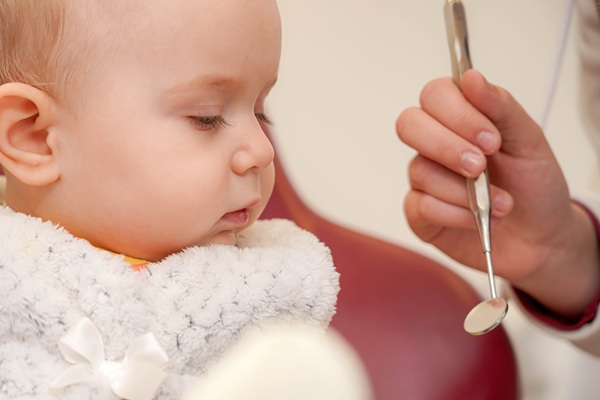Essential Tips for Infant Dental Care

Infant dental care is critical to ensuring long-term oral health and should begin even before the first tooth appears. Establishing good habits early in a child's life helps prevent cavities, gum disease, and other dental issues as a child grows. Pediatric dentists recommend introducing oral hygiene routines during infancy to support healthy teeth and gums and to promote positive dental experiences in the future.
Cleaning before teeth erupt
Infant dental care starts with gentle gum cleaning. Parents can wipe the baby's gums after each feeding using a soft, damp cloth or a silicone finger brush. This helps remove bacteria and prevent the buildup of plaque, even before teeth emerge.
Brushing should begin immediately once the first tooth erupts, usually around six months of age. A soft-bristled, age-appropriate toothbrush and a smear of fluoride toothpaste about the size of a grain of rice are recommended. Brushing should be done twice a day to ensure a healthy start.
Importance of the first dental visit
Pediatric dentists advise scheduling the first dental visit by the child’s first birthday or within six months of the first tooth erupting. This early visit allows the dentist to examine the child’s oral development and detect any early signs of dental concerns. It also allows parents to ask questions about feeding, pacifier use, and teething.
The initial visit helps familiarize the child with the dental office environment, which can reduce anxiety during future appointments and set a positive tone for continued care.
Tips for healthy dental development
Several key practices can support proper infant dental care:
- Avoid putting a baby to bed with a bottle, as this can lead to "baby bottle tooth decay" from prolonged exposure to milk or juice.
- Encourage drinking from a cup as the child nears one year of age.
- Limit sugary drinks and snacks, even at an early age, to reduce the risk of early cavities.
- Use fluoride toothpaste as recommended to help strengthen tooth development.
Maintaining regular dental visits every six months ensures consistent monitoring of oral health and development.
Managing teething and comfort
Teething can cause discomfort, irritability, and mild swelling of the gums. Safe teething rings, cold washcloths, or gently massaging the gums can offer relief. Pediatric dentists advise avoiding teething gels containing benzocaine or other numbing agents that are not recommended for infants.
Consistent oral hygiene and observation during the teething stage help detect abnormal patterns, such as delayed tooth eruption or gum irritation, which dentists can promptly address.
Building healthy habits early
Infant dental care is about cleaning teeth and gums and creating a foundation for lifelong oral health. Teaching children to accept and participate in daily oral hygiene prepares them for independence and long-term well-being. Pediatric dentists work closely with families to educate and support each child's oral development stage.
With early care, consistent habits, and professional guidance, children are likelier to grow up with strong, healthy smiles. For more information or to schedule a consultation, call Cedar Smiles Pediatric Dentistry at (512) 808-5666.
To schedule a consultation, request an appointment on our website at https://www.cedarsmilesdentistry.com or call Cedar Smiles Pediatric Dentistry at (512) 808-5666 for an appointment in our Cedar Park office.
Check out what others are saying about our services on Yelp: Infant Dental Care in Cedar Park, TX.
Related Posts
A pulpotomy is a common pediatric dental procedure that treats decay or infection in the nerve of a baby tooth while preserving the healthy portion of the tooth. When a cavity reaches the nerve chamber, simple fillings no longer provide enough protection. A pulpotomy allows the pediatric dentist to remove the diseased portion of the…
Cavity treatment for kids is a common concern for many parents, as dental decay remains a prevalent childhood health issue. Early intervention and proper care are essential for maintaining healthy teeth and preventing future problems. Partnering with a pediatric dentist can take some of the guesswork out of promoting your child's oral health. To start…
Pediatric orthodontics is a specialized branch of pediatric dental care focused on the growth, development, and alignment of children's teeth and jaws. Pediatric orthodontics addresses dental irregularities when they first appear, promoting healthier oral structures and preventing more complex problems in adolescence and adulthood. Understanding the basics of pediatric orthodontics helps parents make informed decisions…
Kids dentists provide multiple services dedicated to preserving or improving your little ones' oral health. Poor oral health can cause a ripple effect in your kid's development. The teeth play an integral role in their functioning, from bone structure and speech to the digestive and respiratory systems. A kids dentist can help set the foundation…
